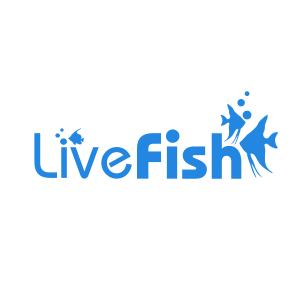Fire Gold Agassizii 4cm
The Apistogramma Agassizii has got to be one of the most popular dwarf cichlids in the world, they now come in a range of different colour strains as well through the art of selective breeding. One of the most classic and popular strains is the Fire Gold, this stunning fish has a much brighter colour palette when compared to the common apistogramma agassizii. The flame-like colours, peaceful behaviour, and great personality make this a fantastic fish to consider for smaller aquariums.
Fire Gold Agassizi Apistogramma Agassizii
The Apistogramma Agassizii has got to be one of the most popular dwarf cichlids in the world, they now come in a range of different colour strains as well through the art of selective breeding. One of the most classic and popular strains is the Fire Gold, this stunning fish has a much brighter colour palette when compared to the common apistogramma agassizii. The flame-like colours, peaceful behaviour, and great personality make this a fantastic fish to consider for smaller aquariums.
The Fire gold agassizii gets its name from the saturated gold body colour it has which is sprinkled with reflective white scales. The fiery flare comes from the bright orange fins, this is especially pronounced on the tail and dorsal fin. The nape of this strain also has a very unique purple streak which adds some additional contrast. When the fire gold agassizii are small they tend to only have a light orange hue however the true vibrancy only appears when these fish mature. These would be the perfect breeding project or highlight centrepiece fish for a smaller community aquarium.
Trying to find the males and females in this species is possible and quite easy where adult males have bolder colours and more pointed dorsal fins, the intensity of these fin colours is also much stronger. Females have lighter-coloured body. The fire folds apistogramma may be shy when first introduced but will quickly become a loved personality as it flares and displays in the aquarium. Breeding these fish is also quite common where females lay eggs in a secluded location of the tank, males will then fertilise the eggs and safeguard the fry until they mature. Naturally, the wild colour Apistogramma agassizii habitat is South America.
Tank Recommendations for your Fire Gold Apistogramma Agassizii
The fire gold apistogramma agassizii white seam only needs a tank around with a volume of around 75 litres as they are a small growing fish they are considered to be smaller than most other Apistogramma species. This makes them great for nano community aquariums or to just show off a breeding pair. A sand substrate is advisable as these cichlids actively will sift through the sand looking for food. They will also appreciate hiding areas around small pieces of driftwood, and rock caves and they will love a densely planted aquarium as well.
Suitable Tank Buddies
The apistogramma agassizii fire gold is quite peaceful with aggression only ever coming out during breeding. With adequate space, these fish will get along with a wide range of community fish.
Usually Compatible
Tetras, gouramis, corydoras, angelfish, cherry barbs, and common community fish species.
Sometime Compatible
Other Apistogramma species and dwarf cichlids such as rams and large peaceful cichlids such as uaru or Severums might outcompete for food.
Rarely Compatible
Shrimp and large aggressive species include African cichlids, Oscars, and Jaguar cichlids.
Feeding your Apistogramma Agassizii Fire Gold
Being tank-bred the fire golds will easily consume aquarium foods. Naturally, they are carnivores and they will readily prefer meaty foods however will take to pellets, flake, frozen, and live foods as well. These food options should be fed on a varied basis to ensure the Apistogramma is getting a range of nutrition.
| Scientific Name | Apistogramma agassizii |
|---|---|
| Care Level | Moderate |
| Common Names | Apistogramma Fire Gold, Fire Gold agassizii |
| Diet | Carnivore |
| Fish Family | Cichlidae |
| Lifespan (years) | 10 |
| Max. Length (cm) | 7 |
| Min. Tank Volume (l) | 75 |
| Origin | South America |
| Reef Safe | Yes |
| Sociability | Peaceful |
| Venomous | No |
| Water Conditions | 24-26° C, pH 5.0-7.0 |

